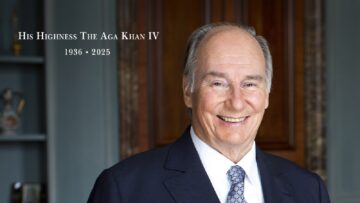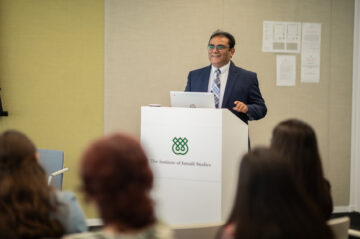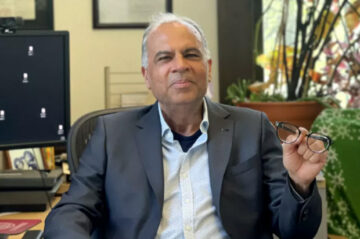In many parts of the Arab Middle East, modern institutions and ideas date back to the nineteenth century, noted Professor Zubaida.
The resulting transformations were not only cultural but also socio-economic and religious. There were supporters and resistors to these transformations, but the overall feature of this early modernity was relative openness, diversity and tolerance. Political and social writings in Arab societies during the late nineteenth and early twentieth centuries were innovative and radical in their modernist thought.
Only in the second half of the twentieth century was there a serious counter-wave that saw modernity as anti-religious. Lecture on ‘Everyday modernity in Arab world’.
According to Professor Zubaida, political Islam – advocating a ‘return’ to religious ‘purity’ – must be seen against a background of secularisation. Yet, this often overlooks the lived cosmopolitan history of the region. As it turns out, especially in the midst of globalisation, everyday modernity engages the ‘economy of desire’, driven by consumerist demands.
This material culture undermines ideologies of all kinds, including those of fundamentalism. Professor Zubaida cited examples ranging from food and clothing choices to the cinema and sexuality that defy attempts at control, official or otherwise.
Earlier in his introductory remarks, Dr Amyn Sajoo, the series’ organiser, situated Professor Zubaida’s lecture in the context of the series. Alluding to the mixing of the sacred and the secular in various public contexts in the Muslim world, he noted that the tension between ideology and everyday culture raises key questions about ‘the limits of official policy, the place of public religion in civic modernity, and the capacity of cultural tradition to reinvent itself.’
Future speakers in this series will include Professor Amira Bennison, Dr Ismail Serageldin and Professor Abdelwahab el-Affendi.






